Find Help
More Items From Ergsy search
-

Total Hip Replacement
Relevance: 100%
-

Total hip replacement
Relevance: 97%
-

Total hip replacement at Northumbria Healthcare
Relevance: 89%
-

What is a hip replacement?
Relevance: 72%
-
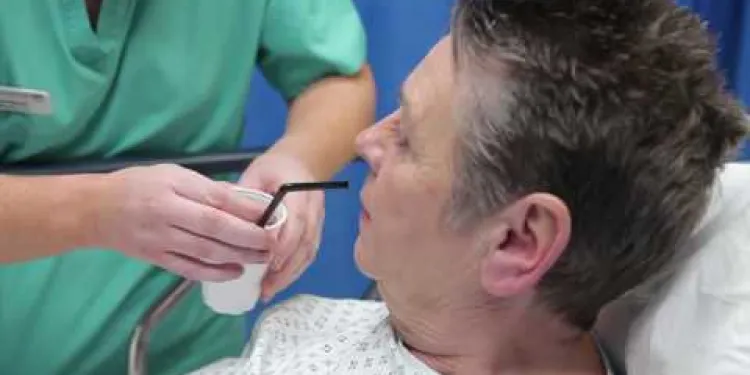
Hip replacement
Relevance: 70%
-
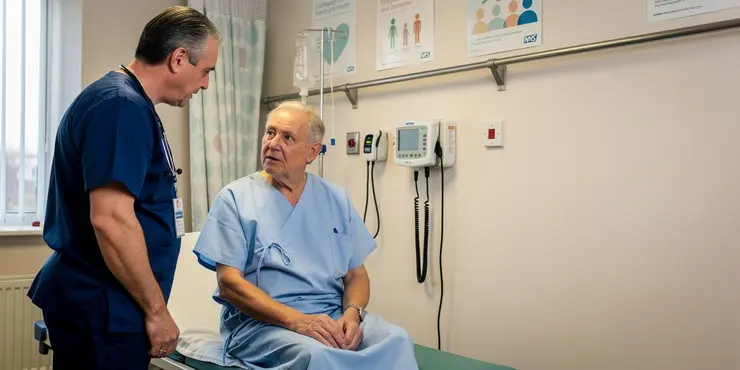
How long does a hip replacement surgery take?
Relevance: 65%
-

Do I need a Hip Replacement?
Relevance: 65%
-
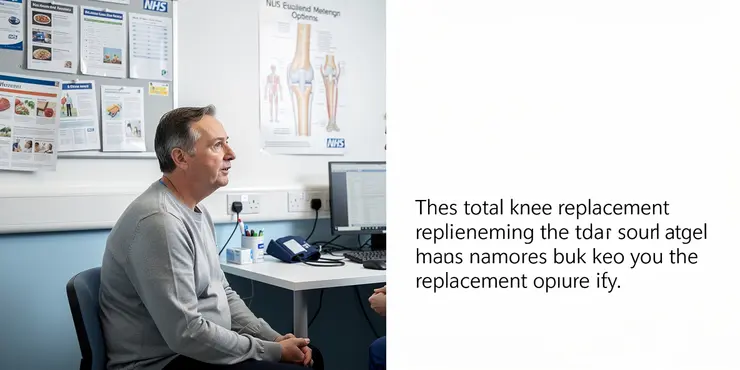
Total Knee Replacement
Relevance: 63%
-
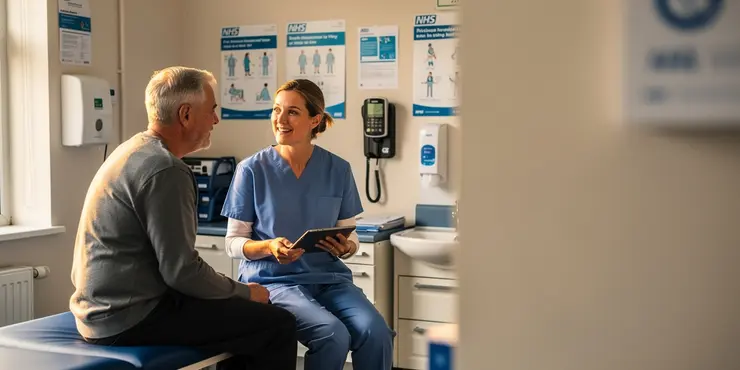
Total knee replacement
Relevance: 62%
-
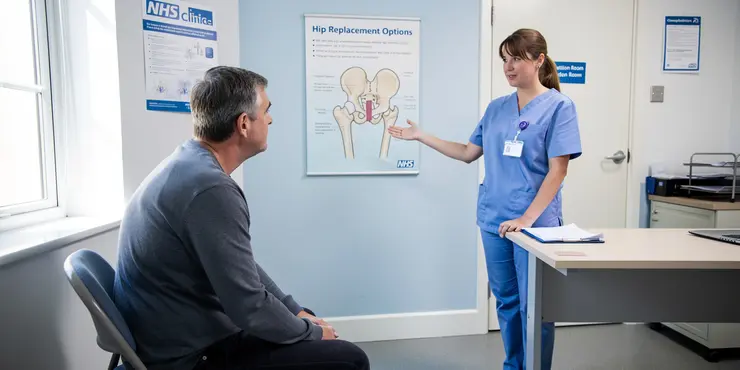
Can both hips be replaced at the same time?
Relevance: 61%
-
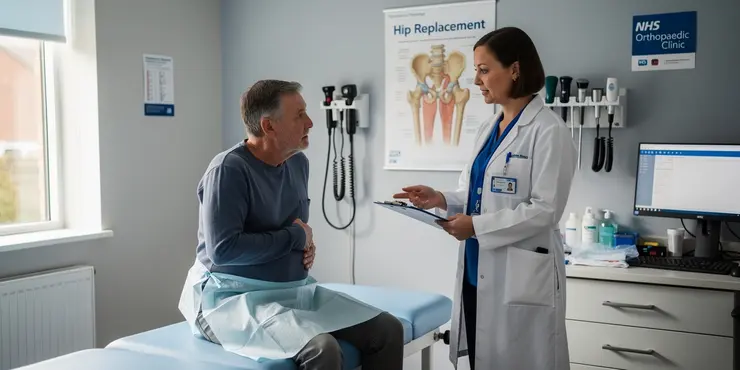
How much does hip replacement surgery cost in the UK?
Relevance: 59%
-
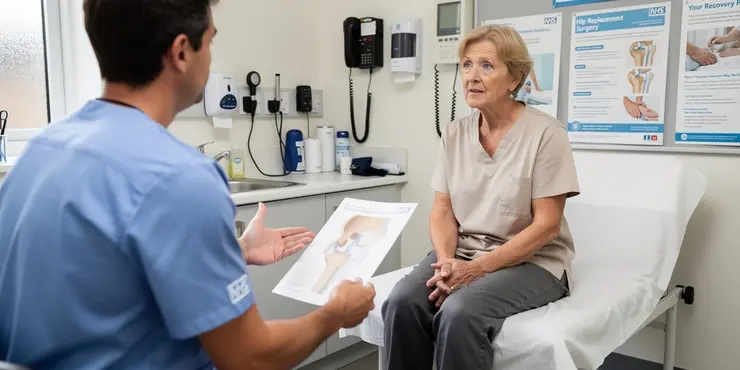
What is minimally invasive hip replacement surgery?
Relevance: 58%
-

What is the recovery time for a hip replacement?
Relevance: 57%
-
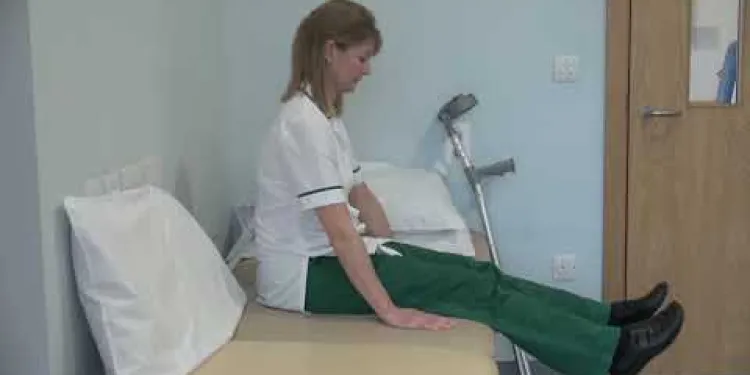
Hip replacement - getting into bed
Relevance: 57%
-
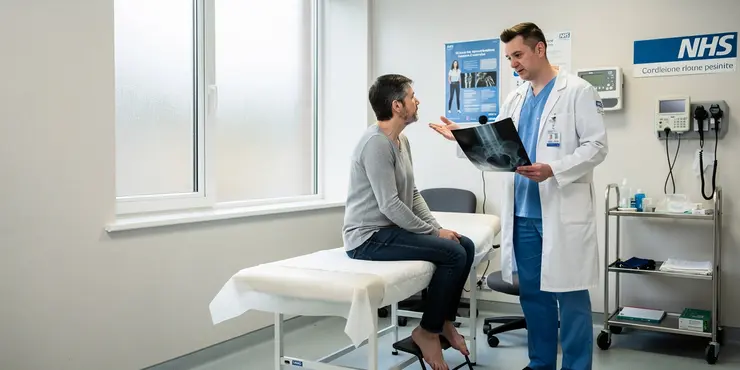
What are the risks associated with hip replacement surgery?
Relevance: 57%
-

Will I need physical therapy after a hip replacement?
Relevance: 55%
-
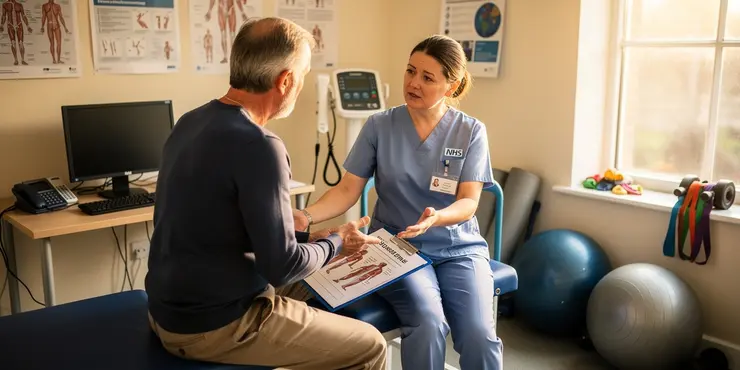
How do I prepare for hip replacement surgery?
Relevance: 53%
-

What type of anaesthesia is used during hip replacement surgery?
Relevance: 52%
-

How long does it take to recover from a hip replacement operation?
Relevance: 50%
-
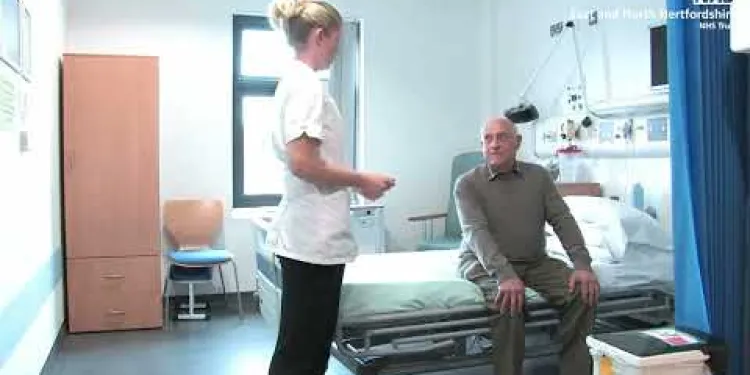
A journey to hip surgery
Relevance: 49%
-
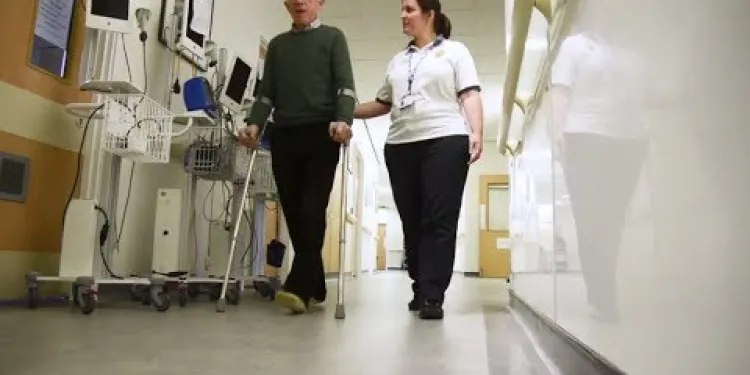
Having a hip replacement - Part Two: Recovery
Relevance: 48%
-

Osteoarthritis of the Hip
Relevance: 46%
-
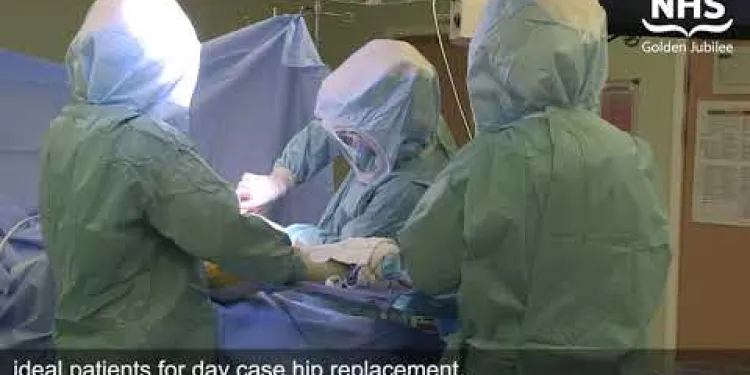
Same day discharge for NHS Golden Jubilee’s hip replacement patients
Relevance: 46%
-

Osteoarthritis of the Hip
Relevance: 45%
-

Your anaesthetic choices for your planned hip or knee replacement surgery at the RUH.
Relevance: 44%
-
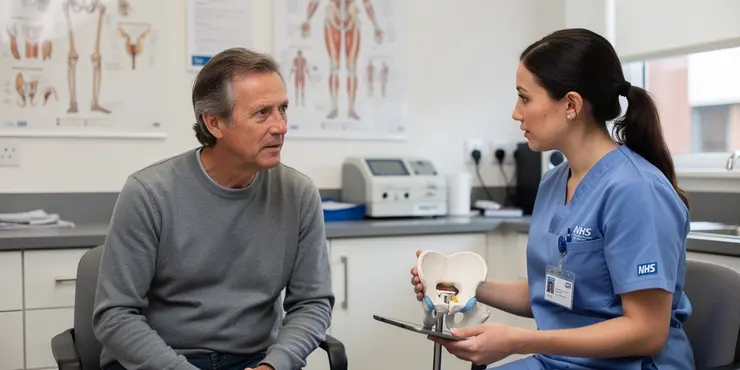
Are there different types of hip implants?
Relevance: 43%
-
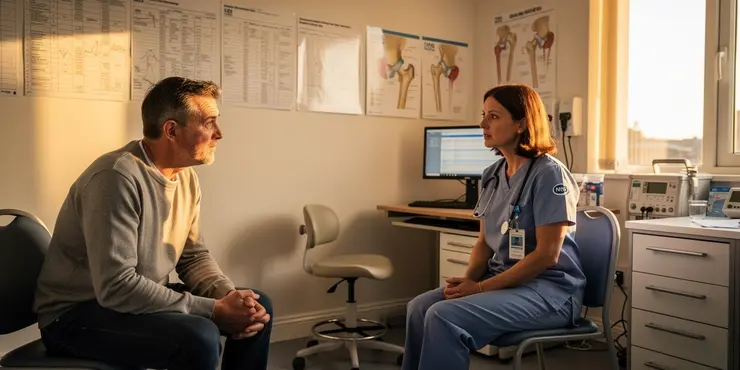
How long do hip replacement implants last?
Relevance: 42%
-
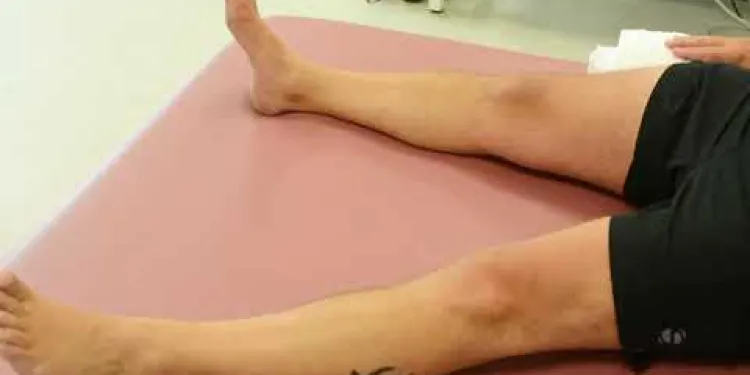
Joint School - Hip Exercises
Relevance: 39%
-
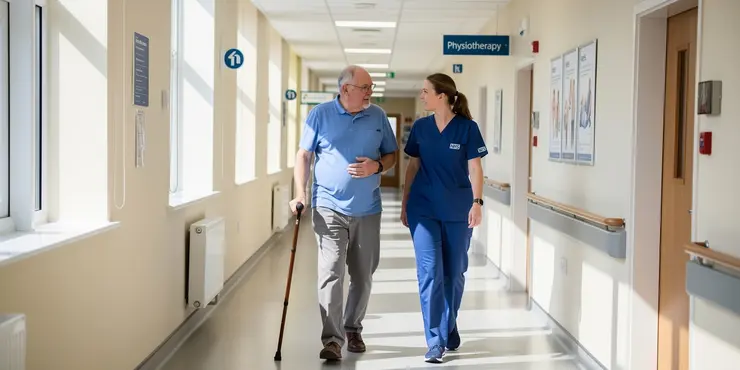
Will I be able to return to normal activities after hip replacement?
Relevance: 39%
-
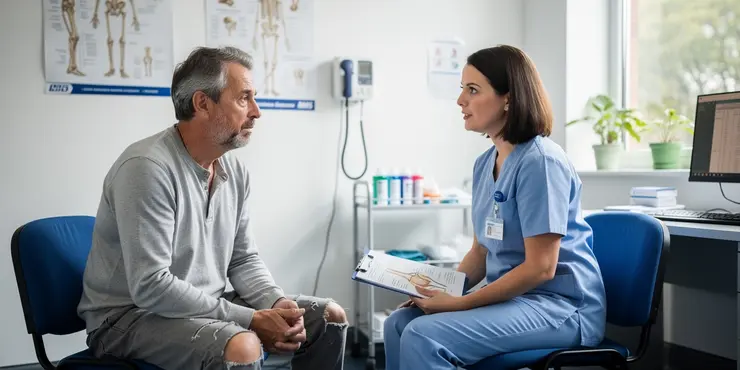
Knee replacement
Relevance: 35%
-
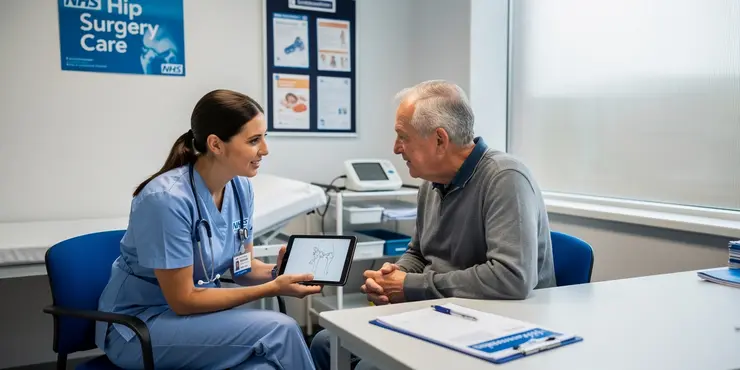
Enhanced Recovery - Hip
Relevance: 33%
-
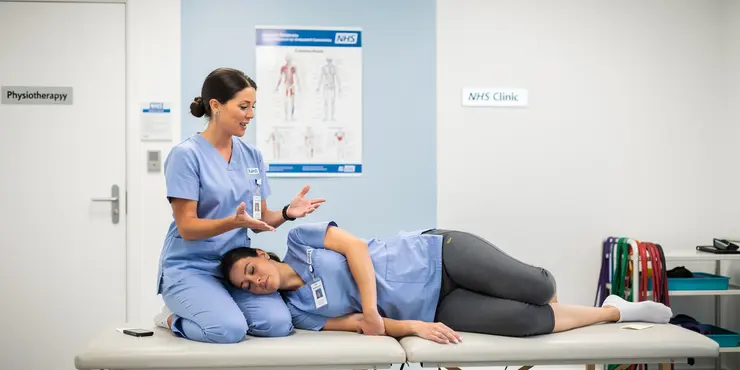
Exercises to help your lateral hip pain
Relevance: 33%
-
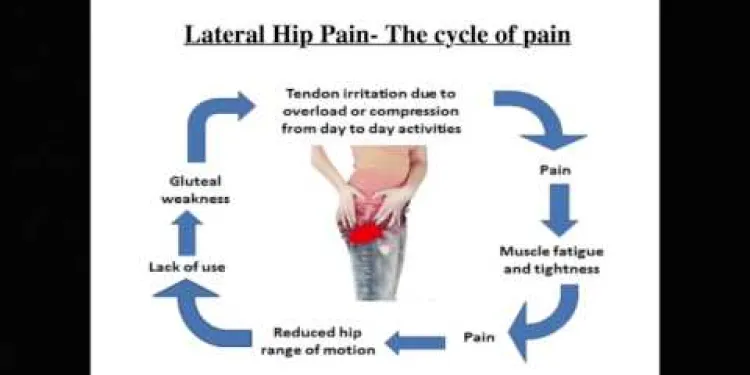
Advice - How to manage your lateral hip pain
Relevance: 32%
-

What can I expect during the first few weeks after hip replacement surgery?
Relevance: 32%
-

Who is a candidate for a hip replacement?
Relevance: 32%
-

NHS Pension - Total Rewards Statement Explained
Relevance: 31%
-

Would a wealth tax replace other taxes in the UK?
Relevance: 27%
-

Does the energy price cap guarantee my total bill?
Relevance: 27%
-

How much is being refunded in total by the UK water companies?
Relevance: 26%
-
Is hormone replacement therapy safe for menopause masking?
Relevance: 22%
Total Hip Replacement
Introduction
Total hip replacement, also known as total hip arthroplasty, is a surgical procedure in which a damaged hip joint is replaced with an artificial one. This treatment is commonly used to relieve pain and improve mobility in patients suffering from severe arthritis or hip fractures. The procedure is highly effective and can significantly enhance the quality of life for those affected.Why Undergo a Total Hip Replacement?
Total hip replacement is often recommended for individuals who experience persistent hip pain that interferes with daily activities, despite non-surgical treatments like physiotherapy, pain medications, or lifestyle changes. Conditions such as osteoarthritis, rheumatoid arthritis, and traumatic hip injuries are common reasons for undergoing this surgery in the United Kingdom.The Procedure
The surgery typically involves making an incision over the hip, removing the damaged cartilage and bone, and replacing them with prosthetic components made of metal, ceramic, or plastic. The new hip joint mimics the natural movement of a healthy hip, allowing patients to return to their daily activities with reduced pain and improved function.Recovery and Rehabilitation
Post-surgery recovery includes a combination of rest, medication, and physiotherapy. Patients are usually encouraged to begin moving and walking soon after the operation to promote healing and prevent complications. Full recovery can take several months, during which time patients may need to use walking aids and attend regular physiotherapy sessions to regain strength and mobility.Risks and Complications
As with any major surgery, total hip replacement comes with potential risks, including infection, blood clots, and prosthesis-related issues such as wear and dislocation. However, advancements in surgical techniques and prosthetic materials have significantly reduced these risks.Conclusion
Total hip replacement is a widely performed and successful operation that offers relief from debilitating hip pain and improves mobility. If you are in the UK and considering this procedure, it is essential to consult with a specialist to understand the best options for your specific condition and achieve the best possible outcome.Total Hip Replacement
Introduction
Total hip replacement is an operation. In this operation, a doctor takes out a bad hip joint and puts in a new one. This new hip joint helps people who have a lot of hip pain or have broken their hip. It can make life much better for those people.Why Get a Total Hip Replacement?
Doctors suggest this surgery if your hip really hurts and stops you from doing things every day. This is if things like exercises, medicine, or changing your habits do not help. People with hip problems like arthritis may get this surgery in the United Kingdom.The Procedure
The doctor makes a cut over the hip. They take out the bad parts and put in new pieces made of metal, ceramic, or plastic. This new hip helps you move like you have a healthy hip again. It lets you do things without much pain.Recovery and Rehabilitation
After surgery, you need to rest and take medicine. You also do exercises to heal. Doctors want you to start moving soon after surgery. It helps you get better faster. Full recovery can take a few months. During this time, you might need to use special tools to walk and go to exercise sessions.Risks and Complications
Like all big surgeries, this surgery has some risks. You could get an infection or blood clots. Sometimes the new hip can have problems. But new methods and materials make these risks smaller.Conclusion
Total hip replacement is a common and successful surgery. It helps take away hip pain and makes moving easier. If you are thinking about this surgery in the UK, talk to a doctor who knows a lot about it. They can help you decide what is best for you.Frequently Asked Questions
What is a total hip replacement?
A total hip replacement is a surgical procedure where a damaged hip joint is replaced with an artificial one to relieve pain and improve function.
How long does a total hip replacement surgery take?
The surgery typically takes between 1 to 2 hours, although this can vary depending on the individual case.
Who is a candidate for total hip replacement?
Candidates are usually individuals suffering from severe hip pain and reduced mobility due to arthritis, fractures, or other hip conditions that have not improved with conservative treatments.
What are the risks associated with total hip replacement?
Risks include infection, blood clots, dislocation, implant wear or failure, and nerve injury, although these complications are relatively rare.
How long will I stay in the hospital after a total hip replacement?
Most patients stay in the hospital for 2 to 5 days after the surgery, depending on their individual recovery and health condition.
What can I expect during the recovery period?
Recovery involves physical therapy, pain management, and gradual return to normal activities. Full recovery can take several months.
When can I return to normal activities after a total hip replacement?
Many patients can resume most normal activities and light exercise within 6 to 12 weeks, but it may take up to 6 months for a full recovery.
Will I need physical therapy after a total hip replacement?
Yes, physical therapy is crucial to help restore strength, flexibility, and movement, ensuring the best possible recovery.
How long will my new hip joint last?
Modern hip replacements typically last 15 to 20 years, but this can vary based on factors like activity level, weight, and overall health.
What type of anaesthesia is used during total hip replacement surgery?
Total hip replacement surgery is usually performed under general anaesthesia or spinal anaesthesia, depending on patient and surgeon preference.
Can I drive after a total hip replacement?
You can usually start driving again about 6 to 8 weeks after surgery, once you feel confident, and your surgeon has given you approval.
Are there any specific precautions I need to take after surgery?
Yes, you'll need to avoid certain movements and activities that could dislocate your new hip joint, such as crossing your legs or bending excessively at the hip.
Will I have much pain after the surgery?
Some pain and discomfort are normal after surgery, but effective pain management strategies will be used to keep you comfortable as you recover.
What kind of implant will be used in my hip replacement?
Various types of implants are available, including metal-on-metal, metal-on-plastic, and ceramic-on-ceramic. Your surgeon will choose the best option for your specific condition.
Is a total hip replacement covered by the NHS?
Yes, a total hip replacement is commonly performed under the NHS for patients who meet the medical criteria for surgery.
What is a new hip?
A new hip is when a doctor gives you a new hip bone. They take out the old one and put in a new, shiny one.
This can help if your hip hurts a lot and makes it hard to move.
Using pictures or videos can help you understand more about how this is done.
A total hip replacement is a type of surgery. Doctors take out a bad hip joint and put in a new, fake one. This helps to stop pain and makes moving easier.
How long does a hip surgery take?
The surgery usually takes 1 to 2 hours. This can sometimes change depending on the person.
Who can get a new hip?
People who might need this are those who have a lot of pain in their hip and find it hard to move. This could be because of arthritis, broken bones, or other hip problems. If exercises or medicine have not helped them feel better, they might need extra help.
What are the dangers of having a hip replaced?
When doctors give you a new hip, there can be dangers. Here are some things to know:
- Pain: You might feel sore after the surgery.
- Infection: Sometimes, germs can get into the body and make you sick. It is called an infection.
- Blood Clots: Little clumps can form in your blood that can be dangerous.
- Hip Problems: Sometimes, the new hip might not work perfectly.
Doctors and nurses will help you feel better and stay safe. You can also talk to your family if you are worried.
There are some things that can go wrong, but they don't happen very often. You could get an infection. Blood clots might form. The new part might not stay in the right place. It could wear out or break. There might also be nerve damage.
How long will I stay in the hospital after a total hip replacement?
After you get your new hip, you might stay in the hospital for 1 to 3 days.
Some people might go home on the same day. It depends on how you feel and if you have someone to help you.
Ask your doctor what to expect. You can use pictures or videos to understand better. A friend or family member can also help explain things to you.
Most people stay in the hospital for 2 to 5 days after the surgery. How long they stay depends on how well they get better and their health.
What happens when I am getting better?
Getting better means doing special exercises, taking medicine for pain, and slowly doing normal things again. It might take a few months to feel all better.
When can I go back to my usual activities after a hip surgery?
After your hip surgery, your doctor will tell you when you can go back to doing your normal activities. This can be different for each person.
Here are some tips to help you:
- Listen to your doctor's advice.
- Use a walker or crutches if you need help walking.
- Ask your family or friends if you need help at home.
- Use simple tools like grabbers to pick things up from the floor.
If you have questions, you can ask your doctor or nurse. They are there to help you.
Many people can start doing normal things and light exercise again in 6 to 12 weeks. But, getting completely better might take up to 6 months.
Will I need help moving after a new hip?
After you get a new hip, you might need help to move and get strong again. This help is called 'physical therapy'.
A 'physical therapist' is a person who helps you exercise safely. They will show you how to walk and move in the right way.
Here are some things that can help you:
- Do the exercises the therapist shows you every day.
- Use a cane or walker if you need help walking.
- Ask someone to help you at home if you find things hard.
Getting help moving is important. It helps you feel better and gets you back to doing the things you like!
Yes, physical therapy is very important. It helps make your muscles strong and flexible again. It also helps you move better so you can recover well.
If you need more help, you can use pictures or videos to see how to do the exercises. You can also ask a grown-up or someone you trust to show you. Practicing a little bit every day can help you get better!
How long will my new hip joint last?
Your new hip joint can last a long time. Most new hip joints last around 15 to 20 years. Some last even longer!
Taking care of your hip can help it last longer. Here are some tips to help:
- Do gentle exercises like walking or swimming.
- Eat healthy food to keep your body strong.
- Avoid doing too much or lifting heavy things.
If you have questions or feel pain, talk to your doctor or nurse. They are there to help you.
Most new hip replacements last for 15 to 20 years. This can be different for each person. It depends on how much you move, your weight, and how healthy you are.
If you find reading hard, using pictures or diagrams can help understand the information better. You can also ask someone to read it out loud to you or use a device that reads text aloud.
What kind of medicine helps you sleep during hip surgery?
When you have hip surgery, the doctor can give you medicine to make you sleep or numb your lower body. This helps you not feel pain. The doctor and patient choose the best medicine together.
Can I drive after a total hip replacement?
After you have a new hip, you might wonder if you can drive a car. Here’s what you need to know:
- Ask your doctor when it is safe to drive again.
- You may need to wait a few weeks before driving.
- Your hip needs time to heal and get strong.
Helpful tips:
- Practice using your leg gently.
- Take it slow and do not rush to drive.
- Use a cushion to sit more comfortably if needed.
Always make sure you feel safe and ready before you start driving.
You can start driving about 6 to 8 weeks after your surgery. Make sure you feel ready and your doctor says it's okay.
What should I do to take care of myself after surgery?
Here are some simple steps to follow after your surgery:
- Rest: Make sure you get plenty of sleep. Your body needs time to heal.
- Listen to the doctor: Follow any advice the doctor gave you. Ask questions if you do not understand something.
- Take medicine: If you have any pain, take the medicine the doctor gave you.
- Eat healthy foods: Eating healthy can help you get better faster.
- Ask for help: If you need help, ask a family member or friend.
Yes, you should be careful and not do some things so your new hip stays safe. Do not cross your legs or bend your hip too much.
Will it hurt a lot after the surgery?
You might feel some pain after the surgery. But doctors can give you medicine to help. You can also use a warm blanket or listen to music to feel better. If it hurts too much, tell your doctor or nurse. They can help you.
It is normal to feel some pain and discomfort after an operation. But don't worry! The doctors will give you medicine to help you feel better as you get better.
What kind of implant will go in my hip replacement?
If you need a hip replacement, the doctor will put a special part inside your hip. This part is called an implant.
There are different kinds of implants, and your doctor will choose the best one for you. They think about things like:
- Your age
- How strong your bones are
- If you have allergies to materials
If you want help understanding this information, you can:
- Ask the doctor to explain it in a simple way
- Bring a friend or family member to talk with the doctor
- Use pictures or videos to help you see what happens
It is important to talk to your doctor so they can help you pick the right implant for your hip.
There are different types of implants. These include metal on metal, metal on plastic, and ceramic on ceramic. Your doctor will decide which one is best for you.
Can you get a new hip on the NHS?
Yes, you can get a new hip through the NHS. This is called a hip replacement. If your hip hurts a lot and makes it hard to move, the doctor might say you need a new hip. You can ask your doctor for help.
To make reading easier, you can:
- Use a finger or ruler to keep your place.
- Read one sentence at a time.
- Ask someone to read with you.
Yes, you can get a hip replacement through the NHS if the doctor says you need it.
Useful Links
This website offers general information and is not a substitute for professional advice.
Always seek guidance from qualified professionals.
If you have any medical concerns or need urgent help, contact a healthcare professional or emergency services immediately.
Some of this content was generated with AI assistance. We’ve done our best to keep it accurate, helpful, and human-friendly.
- Ergsy carfully checks the information in the videos we provide here.
- Videos shown by Youtube after a video has completed, have NOT been reviewed by ERGSY.
- To view, click the arrow in centre of video.
- Most of the videos you find here will have subtitles and/or closed captions available.
- You may need to turn these on, and choose your preferred language.
- Go to the video you'd like to watch.
- If closed captions (CC) are available, settings will be visible on the bottom right of the video player.
- To turn on Captions, click settings .
- To turn off Captions, click settings again.
More Items From Ergsy search
-

Total Hip Replacement
Relevance: 100%
-

Total hip replacement
Relevance: 97%
-

Total hip replacement at Northumbria Healthcare
Relevance: 89%
-

What is a hip replacement?
Relevance: 72%
-

Hip replacement
Relevance: 70%
-

How long does a hip replacement surgery take?
Relevance: 65%
-

Do I need a Hip Replacement?
Relevance: 65%
-

Total Knee Replacement
Relevance: 63%
-

Total knee replacement
Relevance: 62%
-

Can both hips be replaced at the same time?
Relevance: 61%
-

How much does hip replacement surgery cost in the UK?
Relevance: 59%
-

What is minimally invasive hip replacement surgery?
Relevance: 58%
-

What is the recovery time for a hip replacement?
Relevance: 57%
-

Hip replacement - getting into bed
Relevance: 57%
-

What are the risks associated with hip replacement surgery?
Relevance: 57%
-

Will I need physical therapy after a hip replacement?
Relevance: 55%
-

How do I prepare for hip replacement surgery?
Relevance: 53%
-

What type of anaesthesia is used during hip replacement surgery?
Relevance: 52%
-

How long does it take to recover from a hip replacement operation?
Relevance: 50%
-

A journey to hip surgery
Relevance: 49%
-

Having a hip replacement - Part Two: Recovery
Relevance: 48%
-

Osteoarthritis of the Hip
Relevance: 46%
-

Same day discharge for NHS Golden Jubilee’s hip replacement patients
Relevance: 46%
-

Osteoarthritis of the Hip
Relevance: 45%
-

Your anaesthetic choices for your planned hip or knee replacement surgery at the RUH.
Relevance: 44%
-

Are there different types of hip implants?
Relevance: 43%
-

How long do hip replacement implants last?
Relevance: 42%
-

Joint School - Hip Exercises
Relevance: 39%
-

Will I be able to return to normal activities after hip replacement?
Relevance: 39%
-

Knee replacement
Relevance: 35%
-

Enhanced Recovery - Hip
Relevance: 33%
-

Exercises to help your lateral hip pain
Relevance: 33%
-

Advice - How to manage your lateral hip pain
Relevance: 32%
-

What can I expect during the first few weeks after hip replacement surgery?
Relevance: 32%
-

Who is a candidate for a hip replacement?
Relevance: 32%
-

NHS Pension - Total Rewards Statement Explained
Relevance: 31%
-

Would a wealth tax replace other taxes in the UK?
Relevance: 27%
-

Does the energy price cap guarantee my total bill?
Relevance: 27%
-

How much is being refunded in total by the UK water companies?
Relevance: 26%
-
Is hormone replacement therapy safe for menopause masking?
Relevance: 22%


